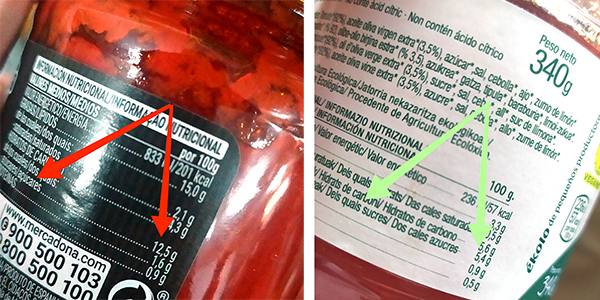
Sugar Blues de William Dufty, published in 1975, and with over 1,600,000 copies sold it has become a classic.
With irrefutable scientific data. It sets out a historical journey through the origin, economic dependence, metabolic degeneration, interests, etc., that refined sugar produced and is producing.
Sugar, refined sucrose, is produced by a multiple chemical process of sugar cane juice or beet in which all fiber and protein is removed, which make up 90 percent of the total natural plant.
Very important to understand is that the body does not need sugar; it needs glucose and this carbohydrate can be obtained from a multitude of different sources such as fruits and vegetables.
“Refined sugar is deadly to humans because it provides only what nutritionists describe as empty or bare calories.
In fact, it is worse than not taking anything, because it drains and extracts vitamins and minerals from the body for the demands that their digestion, detoxification and metabolism produce throughout the body.
Minerals such as sodium (from salt), potassium magnesium (from vegetables) and calcium (from bones) are mobilized and used in a chemical transmutation; neutral acids are produced that try to restore the acid-alkaline imbalance factor of the blood to a more normal state.
If sugar is consumed every day, an excessively acidic condition is continuously produced in the body, and more and more minerals from the depths of the body are needed to try to rectify the imbalance.
Finally, in order to protect the blood, the body extracts so much calcium from the bones and teeth, that caries, decalcifications and eventually a general weakness begin to occur. In the long run, excess sugar affects every organ in the body”
The maximum free sugar recommendation of the World Health Organization (WHO) advises that you do not exceed 25 grams of free sugar per day, consuming a single can of soda we are already ingesting between 35 and 45 grams of sugar.
In Spain, the average consumption of sugar in 2013 was 76.3 grams per person per day, of which almost 50% were the so-called free or added sugars, present in places such as bread, tobacco or tomato sauce.
Sugar consumption per person in the European Union is on average between 33 and 36 kilograms per person per year.
The way to control sugar consumption a bit could be summed up in two tips: “more market and less supermarket”, and if you need to consume processed (and ultra-processed) products, at least read the labels.

More info: “¿Es malo el azúcar? Todo depende de sus apellidos“ and don’t miss the photographic project from Antonio Rodriguez at Sinazucar.org

